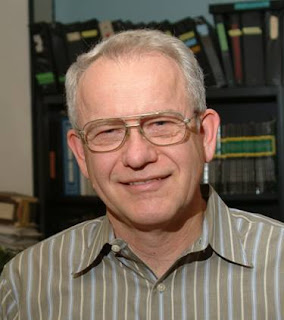 Dr. Bert Ely - Professor of Biological Sciences. Department of Biological Sciences, University of South Carolina. Ph.D., 1973, Johns Hopkins University. ely@sc.edu or 803-777-2768 The African-American DNA Roots Project has been developed in collaboration with Dr. Bruce A. Jackson at the University of Massachusetts to use specific DNA analysis techniques to attempt to identify unique signature sequences among African-Americans that might link them to particular West African ethnic groups. This study will determine the genetic patterns present in two types of DNA, known as the Y chromosome DNA ("Y DNA") and mitochondrial DNA ("mtDNA"). These unique genetic elements are passed directly through the paternal and maternal lines, respectively. Each person’s Y DNA or mtDNA comes directly and solely from his or her father or mother, who got it from their father or mother, who got it from their father or mother, and so on into the past. This property makes Y DNA and mtDNA very useful for learning about the past history of human populations, because it traces a direct line of paternal and/or maternal descent. Additionally, different paternal and maternal lineages have different genetic signatures in their Y DNAs and mtDNAs, so that all paternal or maternal relatives from a lineage can usually be distinguished from those of other lineages. As the Y chromosome and mtDNAs are characterized, they will be compared to reference lineages to identify matches. It is relatively easy to identify the continent of origin for many mtDNA and Y chromosome sequences. However, most Africans have mtDNA lineages that are shared among many ethnic groups due to migrations and ethnic mixing. Therefore, mtDNAs are not very useful for tracing maternal ancestry to small geographic regions (see below). Similar studies are underway with African Y chromosome analyses. | Mitochondrial DNA may not hold the key to unlocking the ancestry of African Americans, according to a study by a University of South Carolina researcher published in this week's issue of the journal BMC Biology. The report by Dr. Bert Ely, a biology professor in the university's College of Arts and Sciences, and colleagues at the universities of Massachusetts and Maryland reveals that fewer than 10 percent of African-American mitochondrial DNA sequences that were analyzed can be matched to mitochondrial DNA from one single African ethnic group. Mitochondrial DNA is the portion of the body's genetic code that is inherited from the mother. In recent years, mitochondrial DNA has become a popular way for tracing maternal ancestry and often is used by companies hired by African Americans to help them trace their ancestry in Africa. "Many people have had their mitochondrial DNA tested with the hope of finding a match in a particular ethnic group in Africa," said Ely, who has been working on this project for about four years. "For African Americans, such a test could provide a clue about the ethnic group or country in Africa where one of their maternal ancestors originated," he said. However, the researchers found that only one in 10 African Americans may be able to find clues about their ancestral origins if mitochondrial DNA is tested. At first glance, it seems that this DNA test would be a good place to start, Ely said. Mitochondrial DNA is passed from mother to daughter with few, if any, changes occurring over many generations. But the task is particularly difficult in Africa because there is more genetic diversity among Africans than among people from any other continent and because humanity has been in Africa longer than anywhere else, Ely said. Another complication is that DNA is spread geographically as people migrate. Thus, identical mitochondrial DNA can be found in people throughout sub-Saharan Africa, he said. For the study, Ely and his colleagues relied on a database of more than 3,700 mitochondrial DNA sequences obtained from people in sub-Saharan Africa. They also used two African-American samples, including people who identify themselves as "Gullah/Geechee" and live along the islands off the coasts of South Carolina and Georgia. The researchers, who were acknowledged for their work on the highly acclaimed PBS series, "African American Lives," found that more than half of the African-American DNA sequences were found in many different sub-Saharan ethnic groups. |
"We need to establish larger databases of DNA as we continue this project," Ely said. "However, we do know that, for most African Americans, it is impossible to use only mitochondrial DNA to determine a single ethnic group as the source of the maternal ancestor."
The study was supported with funding from the National Science Foundation.
To read the study, go to www.biomedcentral.com/bmcbiol/.
Columbia, SC 29208 • 803-777-5400 • uscnews@sc.edu Contact: Juliette Savin press@biomedcentral.com 44-020-763-19931 BioMed Central












No comments:
Post a Comment